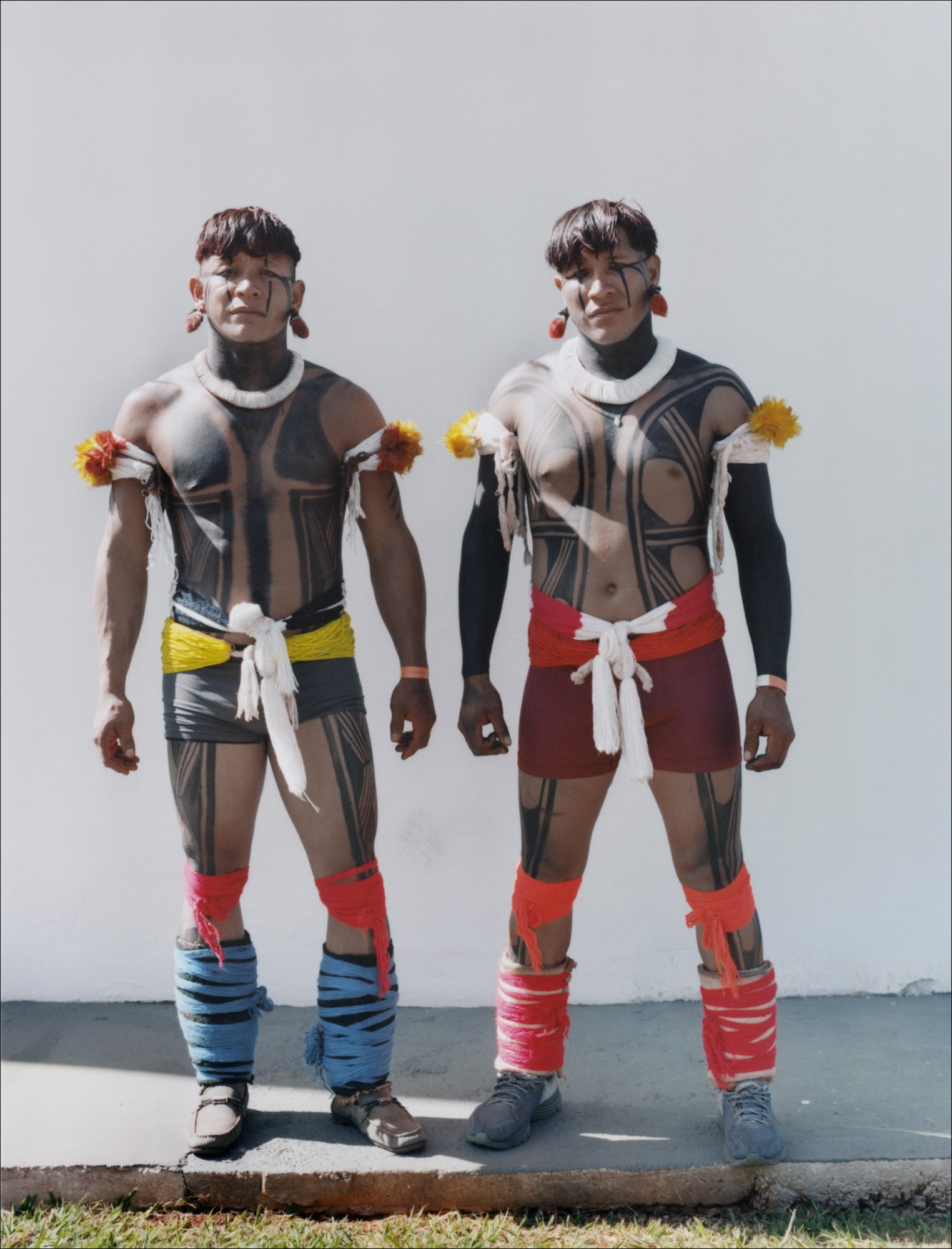This story originally appeared in i-D’s The Earthrise Issue, no. 368, Summer 2022. Order your copy here.
Between April 4th and 14th 2022, thousands of Indigenous peoples from across Brazil’s 27 federative units installed themselves in Brasília, the country’s capital, for Acampamento Terra Livre, the largest Indigenous mobilisation in the nation’s history. Spearheaded by Articulação dos Povos Indígenas do Brasil, Brazil’s largest Indigenous organisation, the ten day manifestation saw members from across the country’s 305 Indigenous peoples unite in protest against the imminent threats posed by policies proposed by the genocidal four-year regime of President Jair Bolsonaro. Policies that, if approved, would gravely contribute to the acceleration of the climate crisis, causing irreversible damage to the forested lands that Indigenous peoples in Brazil currently inhabit and protect.
In attendance at these protests was Vava Ribeiro, a Brazilian photographer who has worked alongside Indigenous communities on personal projects for several years. The following reportage of the events and its attendees is accompanied by a call to action from Indigenous journalist Erisvan Guajajara, the coordinating founder of Mídia Índia, a collective formed by Indigenous people from across different communities and regions. The organisation plays a crucial role in breaking Brazil’s hegemonic and exclusionary media landscape, and ensuring the representation of Indigenous voices and stories.
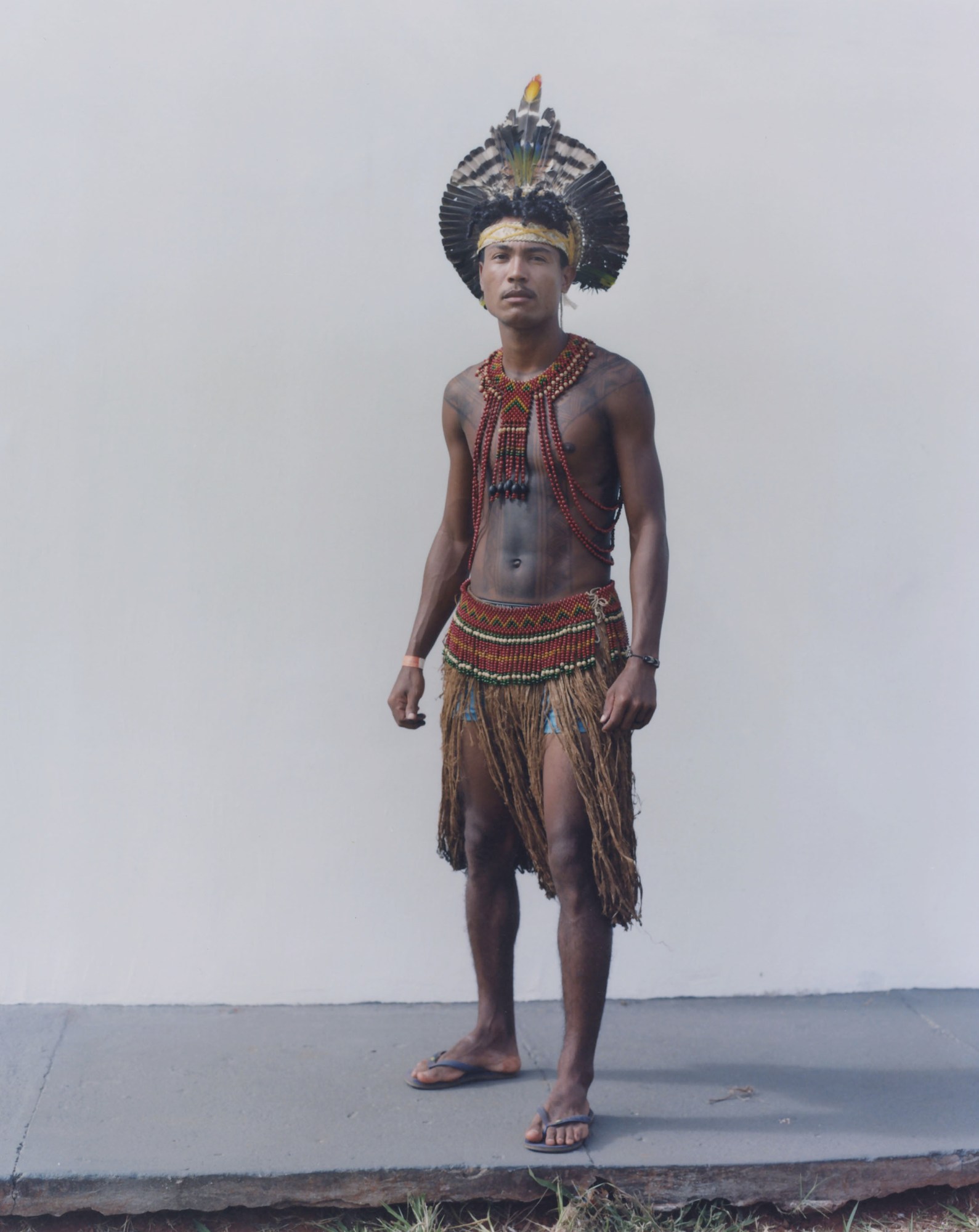
After two long years, the worst for Brazil’s Indigenous peoples in recent memory, we organised the first edition of Acampamento Terra Livre (ATL) – or Free Land Camp in English. This took place even after the isolation of the pandemic, which devastated our territories and killed many of our relatives.
In the month of April – a period considered by the Indigenous movement as a month of struggle and resistance – we left our homes and our daily lives to commit ourselves to the fight; to declare that we were here first and that we are responsible for the future of Brazil and the planet. Between April 4th and 14th 2022, 8,000 Indigenous individuals hailing from 200 different peoples came to Brasília to be a part of the largest Indigenous mobilisation the world has seen. Housed beneath tarpaulins and tents, the camp marked the culmination of eighteen years of effort by Articulação dos Povos Indígenas do Brasil (APIB) – the Articulation of Indigenous Peoples of Brazil – the country’s largest Indigenous organisation, as well as other grassroots organisations.
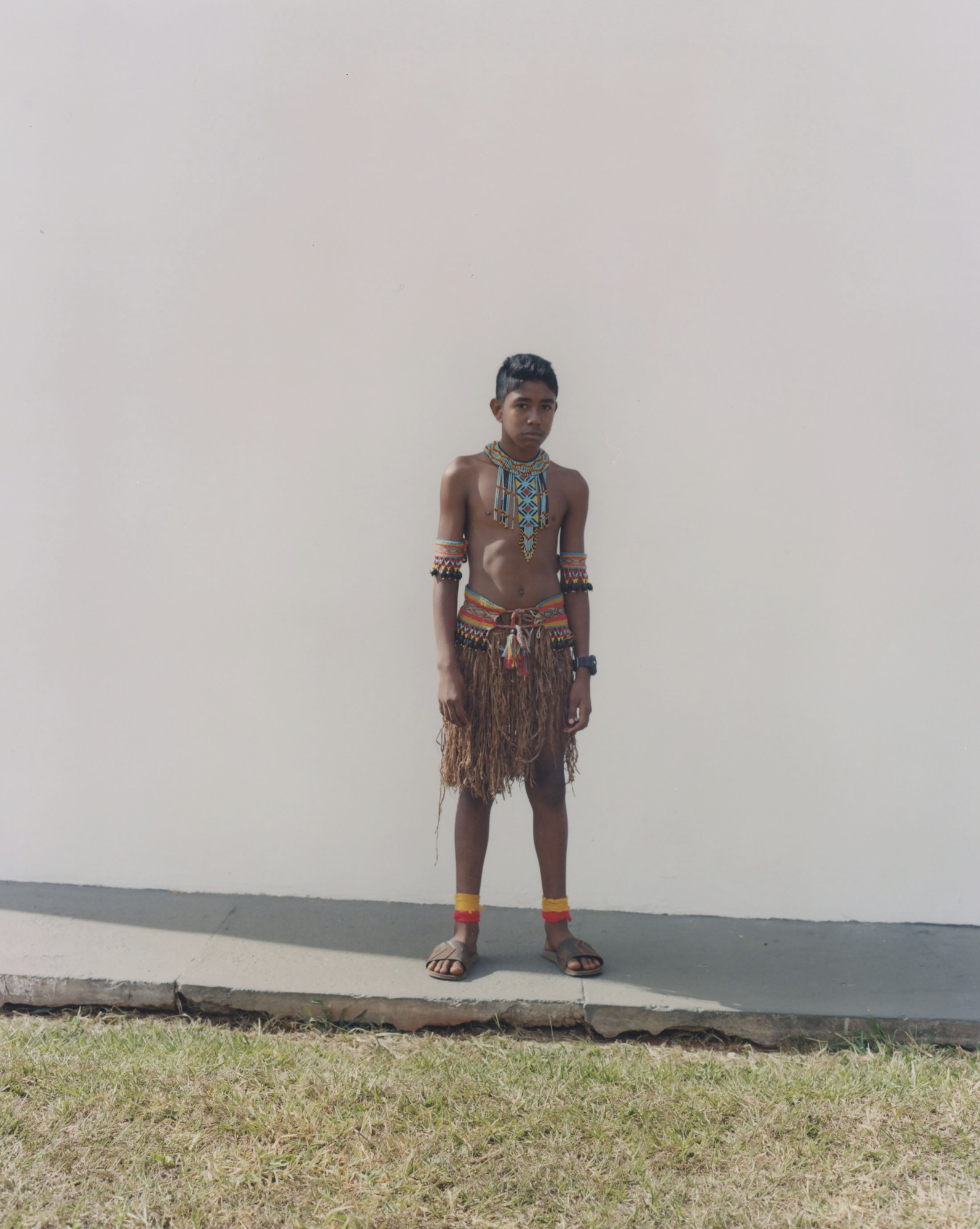
Upon arriving in Brasília – Brazil’s political capital, where many of the decisions that affect our lives are made – we invoked our ancestors, spoke in our languages, sang our songs, and settled in for ten long days of resistance. At the start of each day, Indigenous people representing each of Brazil’s 27 federative units would convene in group meetings to discuss the respective agendas of everyone present.
It should be noted that in Brazil, we have the largest number of Indigenous communities in the world – we are 305 peoples, among whom more than 247 native languages are spoken. Still, while we discussed the particularities of our situations, we also discussed how our existential struggle had become a unifying factor; how the fight for our right to land, and a shared desire for radical transformation, made us a single people. Retaking Brazil: Demarcate the Territories and Indigenize the Politics was the theme of our mobilisation.
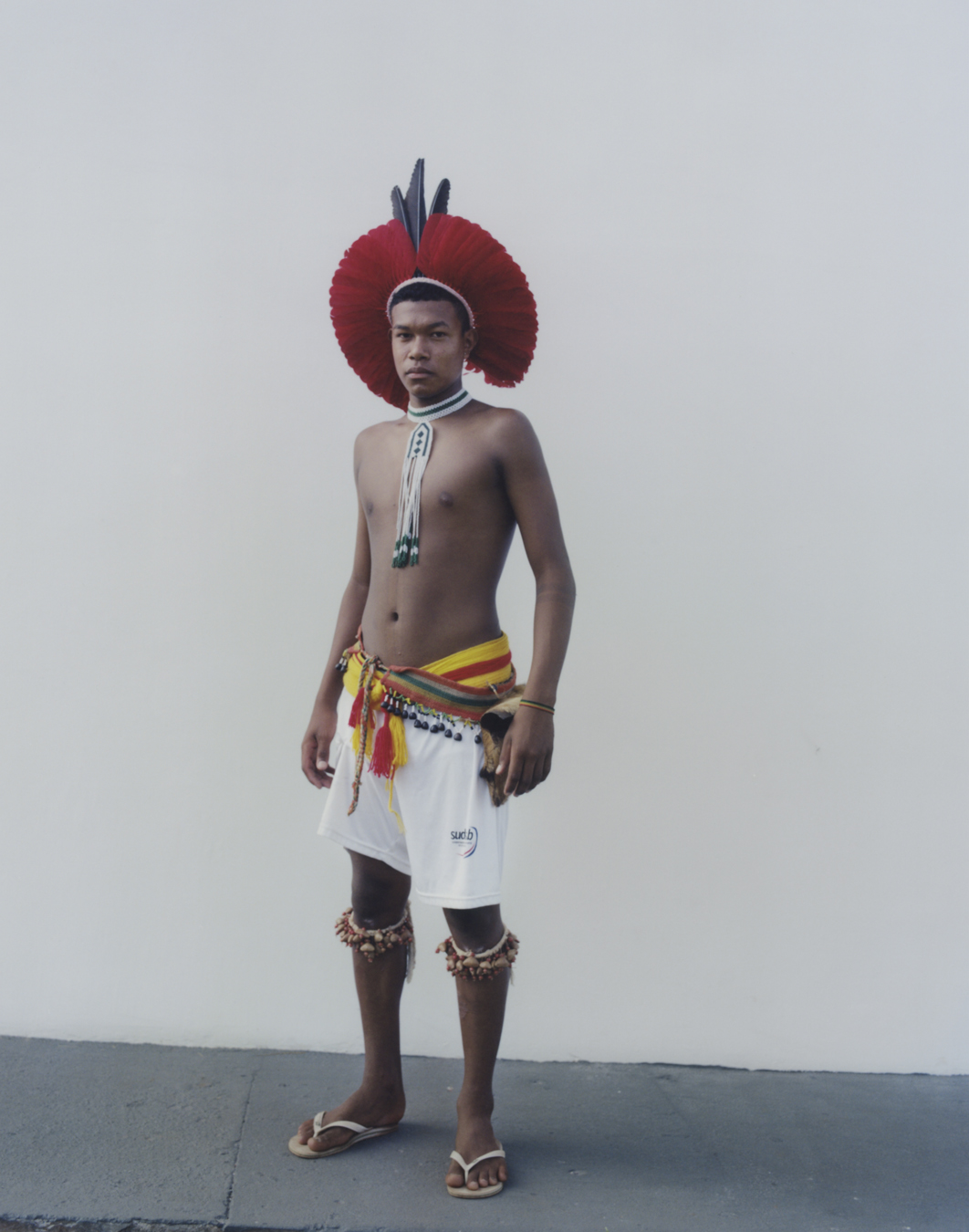
Among the most prominently heard calls was Fora Bolsonaro – Bolsonaro Out. Since the first days of his government in 2018, the president of Brazil has been a pronounced enemy of the country’s Indigenous peoples. He has encouraged invasions of our territories and violence against our relatives. He has worked to legalise the activities of criminal organisations and their members: miners, loggers, ranchers, militiamen and landgrabbers. He has insistently dismantled Brazilian civil institutions to justify the privatisation of public assets, and has persisted in implementing his scheme of destruction and death in our territories: encouraging devastating enterprises such as mining, the construction of hydroelectric plants, ports and roads, and the creation of agricultural monocultures using pesticides that are essentially poisons.
In October, elections will take place in Brazil, following which we will declare that this is the last year of the government of Jair Messias Bolsonaro and its agenda of destruction and genocide. We want to make history by declaring that politics, too, is Indigenous terrain. We will promote good living, reforestation, and the Indigenisation of the political system, working towards a joint, democratic way of deciding what our futures will be and how we will work towards them.
“We fight in memory of our ancestors; for the well-being of the current and future generations of our peoples; for the guarantee and protection of our fundamental rights; for our identity; for our territories; for everything that sustains the conditions required for our physical, cultural and spiritual existence.” Erisvan Guajajara
To this end, the Campanha Indígena – the Indigenous Campaign in English – was launched in 2020 as an initiative of APIB in partnership with regional organisations, to expand the representation of Indigenous peoples in legislative and executive branches across the country. During the ATL, the campaign launched more than 30 Indigenous candidacies for the 2022 elections across the country.
Such representation is crucial in fighting the urgent agendas and death projects that threaten our lives and traditions. Among the current federal government’s core proposals is the opening of Indigenous lands for large scale exploration by mining companies, hydroelectric plants and large infrastructure projects. Bill 191/2020 – one of the main instruments of this policy of destruction, which would permit mining in Indigenous lands – is currently pending in the Brazilian National Congress, and though it is still in the process of becoming law, it is already possible to feel the harmful impacts of mining on our territories. We have seen the contamination of our rivers, and the devastation of forests and entire communities that live within them – when not destroyed or washed away by the toxic mud from leaking mineral waste dams they have been left without access to water.
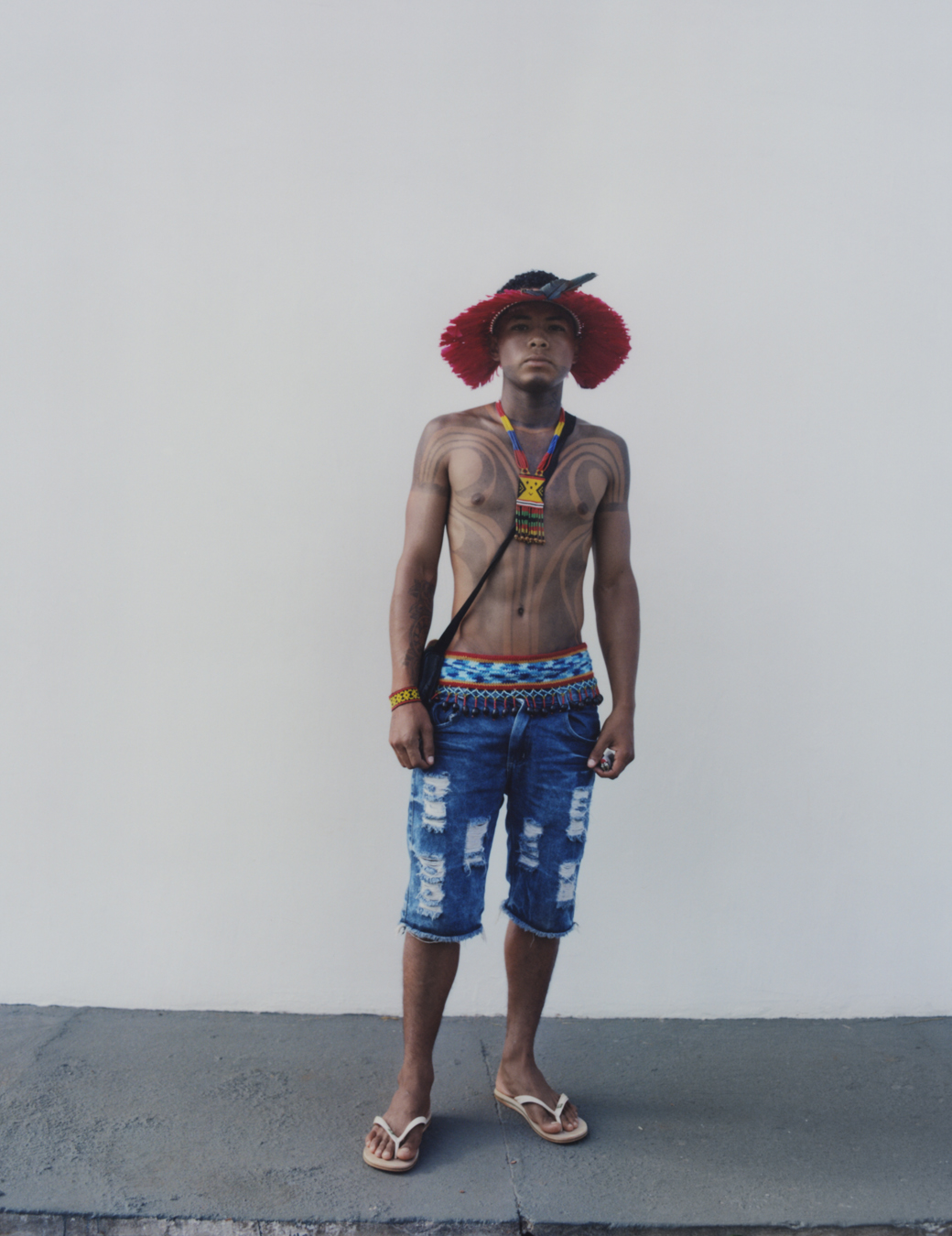
On April 11, in the second week of the ATL mobilisation, we took a stand against the massacres that we have been experiencing due to the effects of illegal mining, marching under the banner: Ouro de Sangue: contra garimpo que mata e desmata – or Blood Gold: against gold mining practices that kill and deforest. If Bill 191/2020 were to be approved, it would make such projects – which, until now, happened very rarely thanks to the 1988 Brazilian Constitution – into regular occurrences, leading to an increase in deforestation, the invasion of indigenous lands, and acts of violence against our peoples.
This is just the tip of the government’s anti-Indigenous agenda. Another piece of harmful legislation currently under consideration is Bill 490/2007, which would bring an end to the demarcations of Indigenous lands, and seek to legalise crimes committed in our territories. On April 19th, the day on which the Day of the Indigenous Peoples is ‘celebrated’ in Brazil, we completed our mobilisation in protest against this bill.
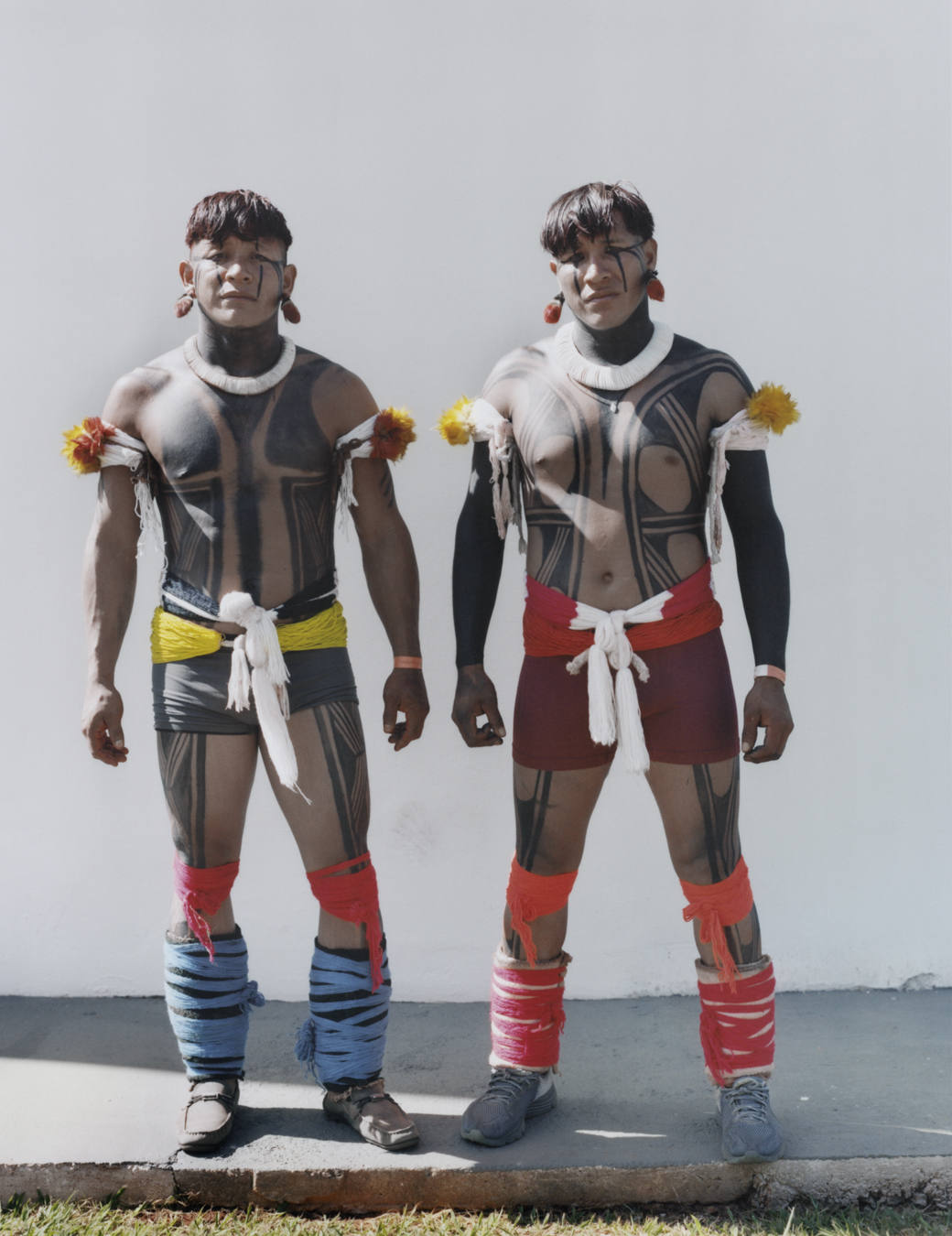
Further bills of note that are currently high on the National Congress’ list of priorities include PL 6299/2002, which would allow for changes in pesticide legislation in Brazil; PL 2633/2020 and PL 510/2021, which would weaken control over public lands occupied by Indigenous peoples — especially in the Amazon; and PL 3729/2004 – a piece of legislation that directly endangers the health of both the environment and the population.
As well as protesting the dangers that these bills posed, we also issued warnings regarding the time frame within which the Federal Supreme Court is set to pass them, with the judgement set to be heard on June 23, 2022. As one of the most important judgments in Brazilian history, it will irrevocably shape what the future of the demarcation of Indigenous lands looks like.
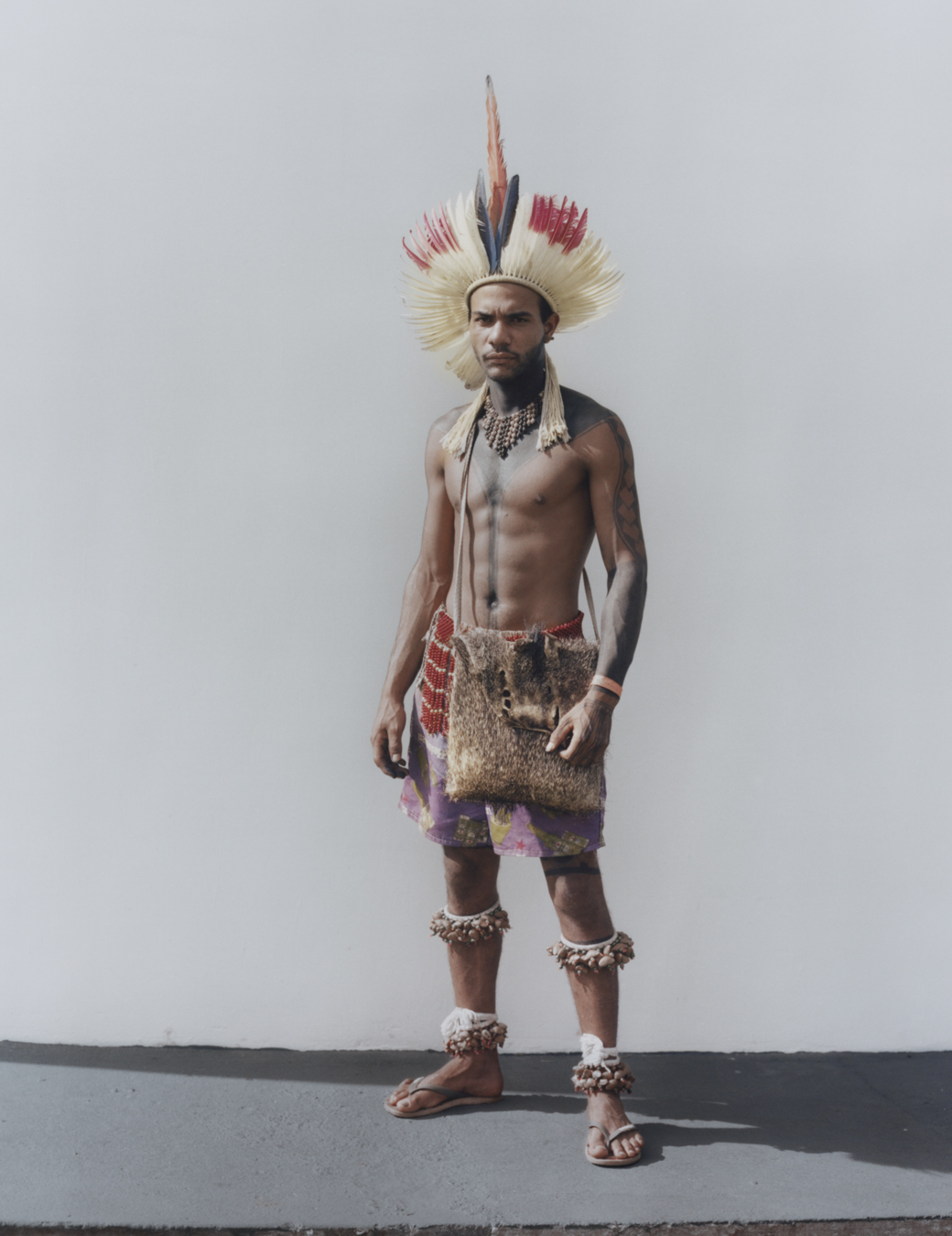
It must be stressed that Brazil’s Indigenous peoples play a crucial and beneficial role in maintaining climate balance. We are guardians and protectors of the forests, working on the front lines to preserve the Amazon and essential biomes for life on the planet. This is a truth proven by the fact that, while 20% of the Brazilian Amazon forest has been deforested in the last 40 years, in lands occupied by Indigenous peoples, only 2% of the original forests have been lost.
Our fight has never been easy. Since the time of the first colonial invasion 522 years ago, we have faced death, ecocide and genocide. This is the worst state we’ve been in in the last 34 years of our democracy. It is important that the world understands what we face in Brazil and what motivates our great struggles. Whether it’s on the streets, in our territories or even on the Internet, we are asking for help, not just for our own sake, but for the sake of humanity – to combat a capitalist project of hatred and destruction. It must be made clear, for once and for all, that Brazil is not a lawless territory or a backyard in which exploitation and massacres can freely take place.
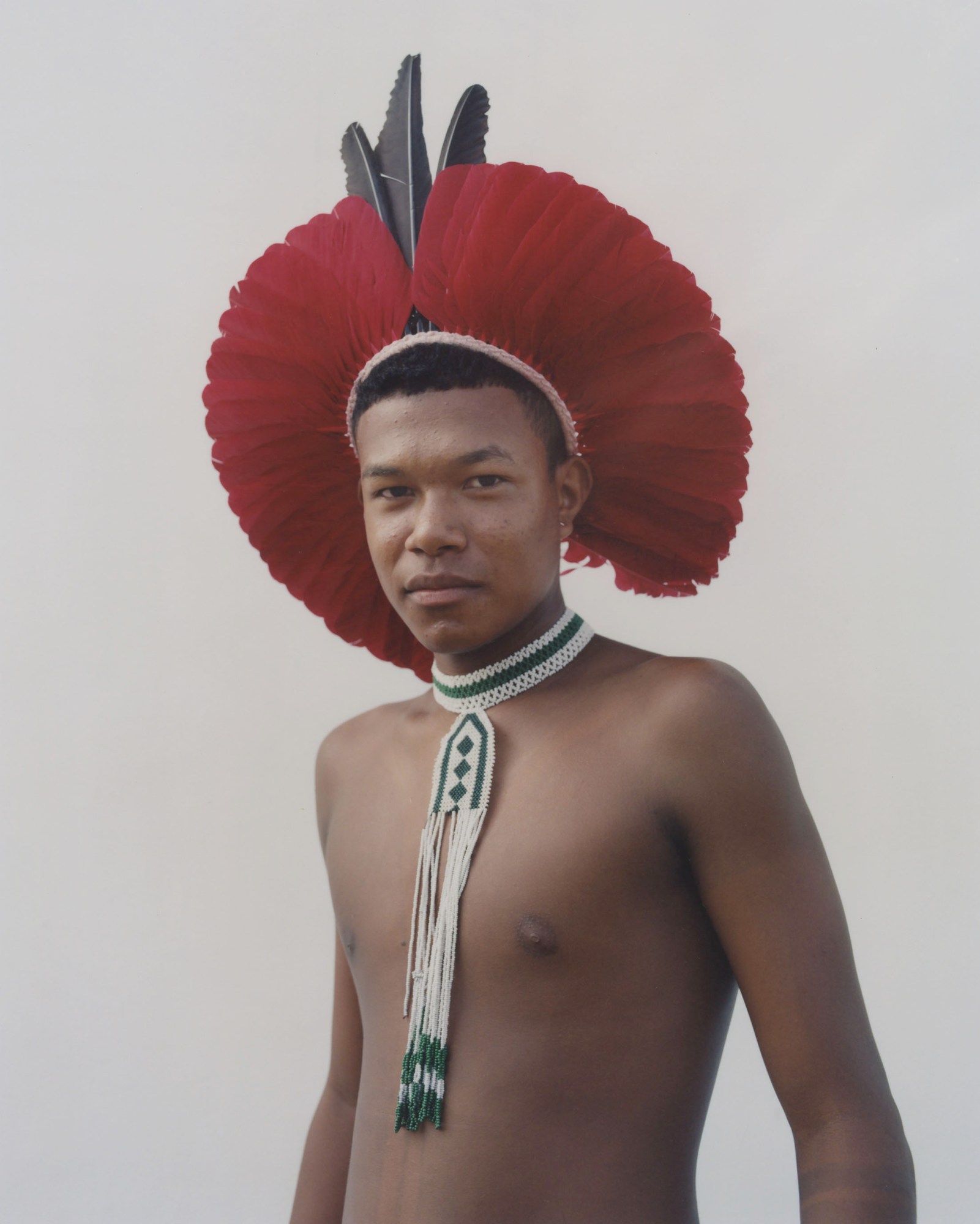
To this end, we reaffirm our determination to continue fighting. We fight in memory of our ancestors; for the well-being of the current and future generations of our peoples; for the guarantee and protection of our fundamental rights; for our identity; for our territories; for everything that sustains the conditions required for our physical, cultural and spiritual existence. If necessary, we will give our lives to defend what we have achieved and preserved until today, which is prefaced by the losses and bloodshed by those that came before us in our struggles.
A year of many challenges lies ahead of us, but we remain committed to the freedom of our territories, our people, Brazilian society and the planet.
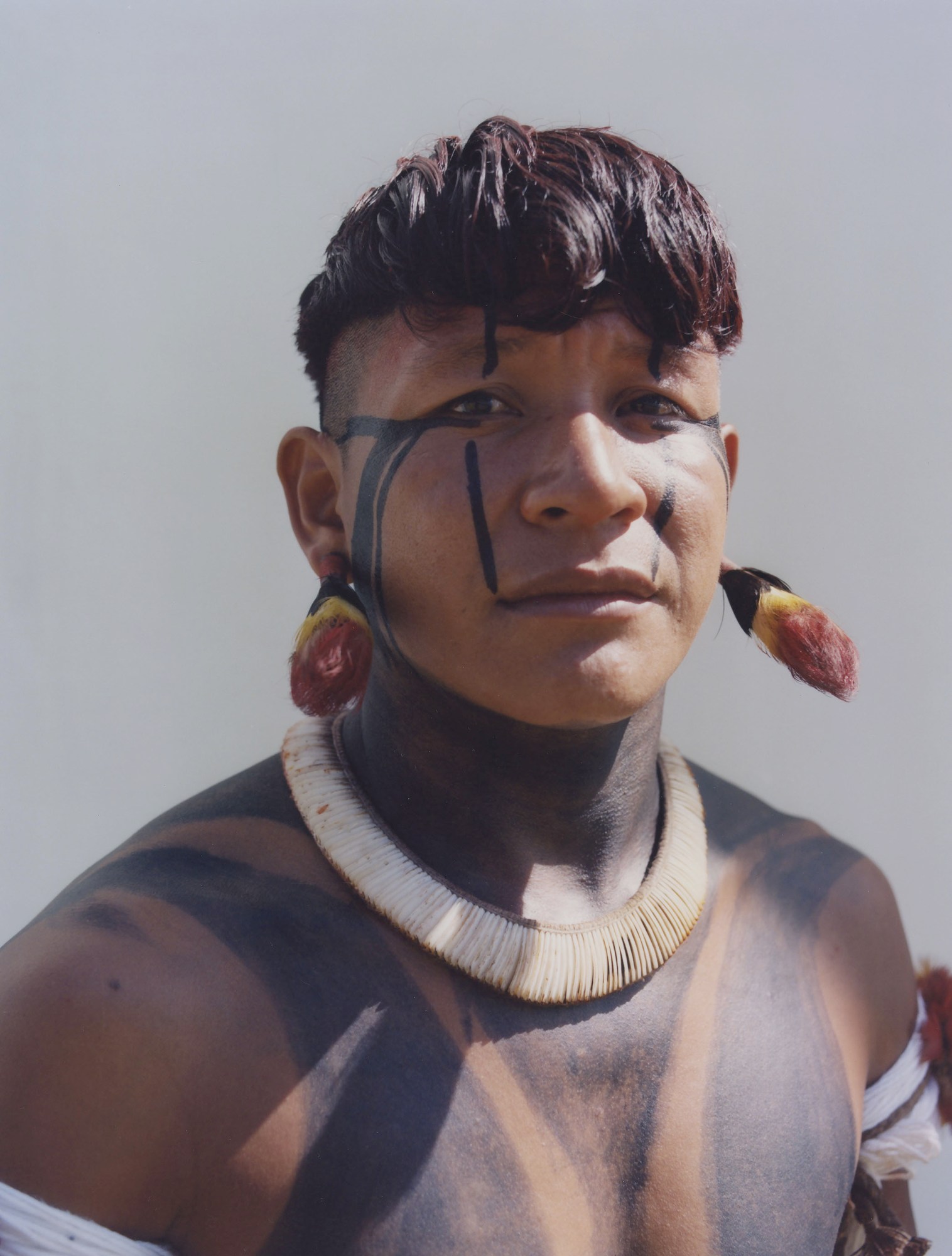
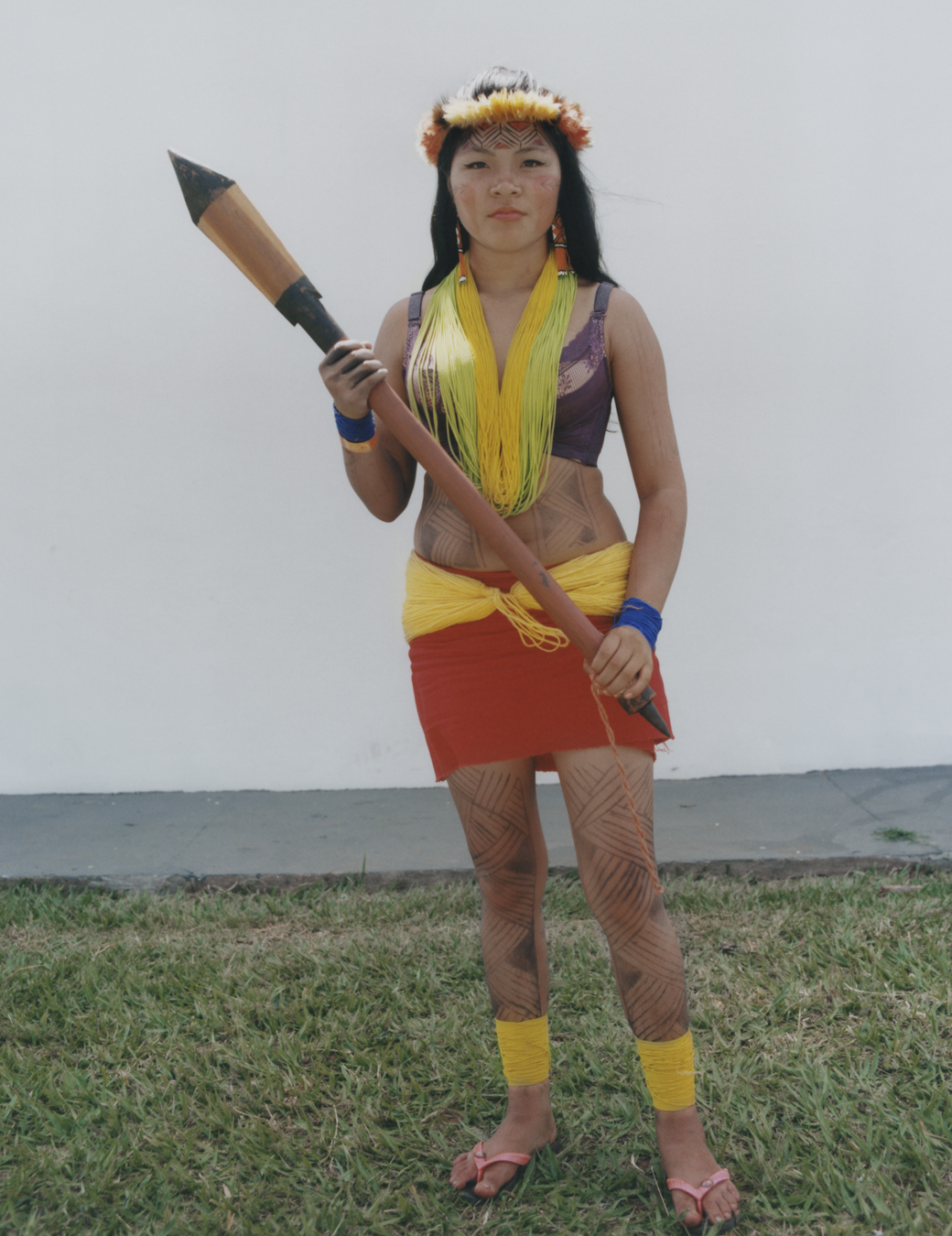
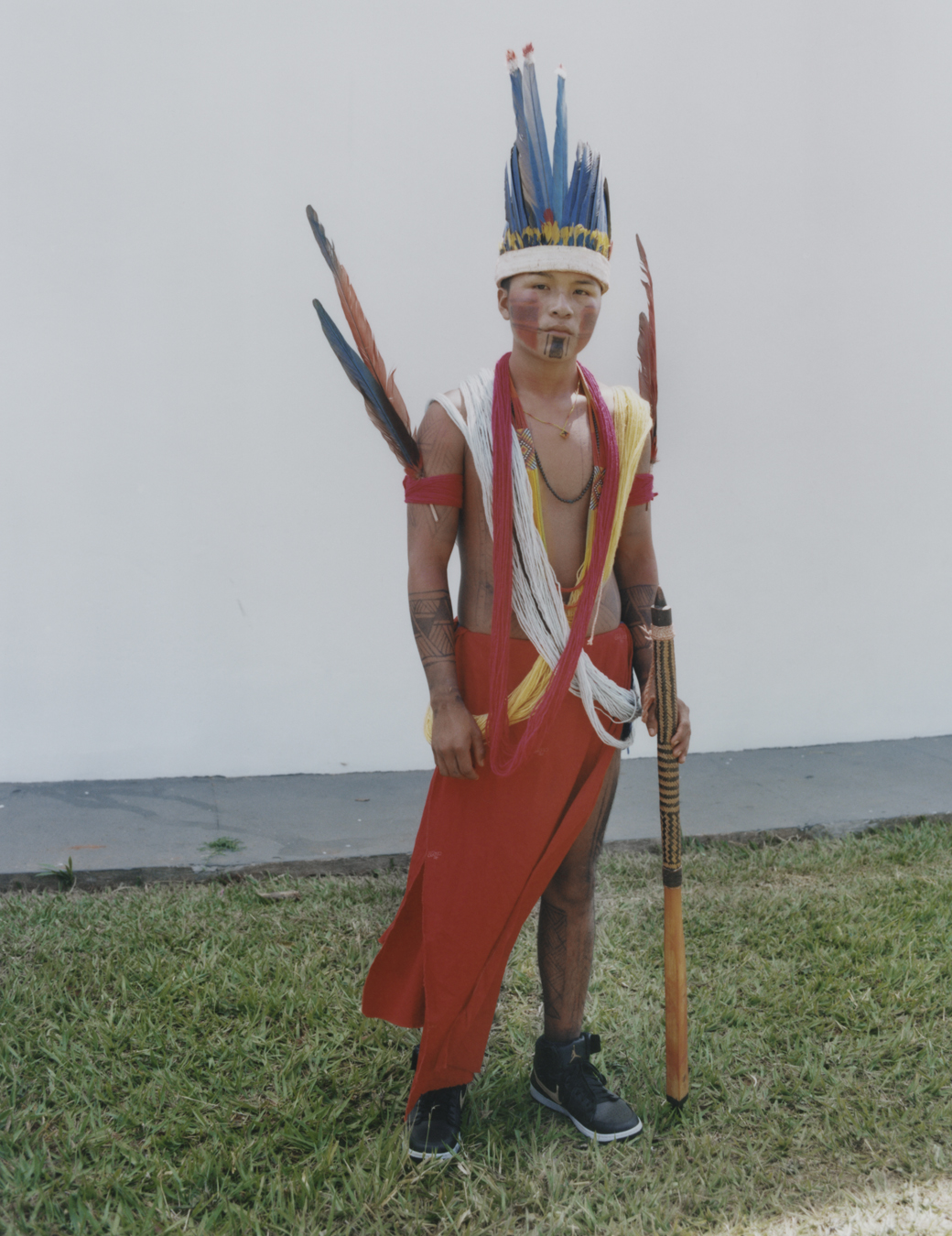

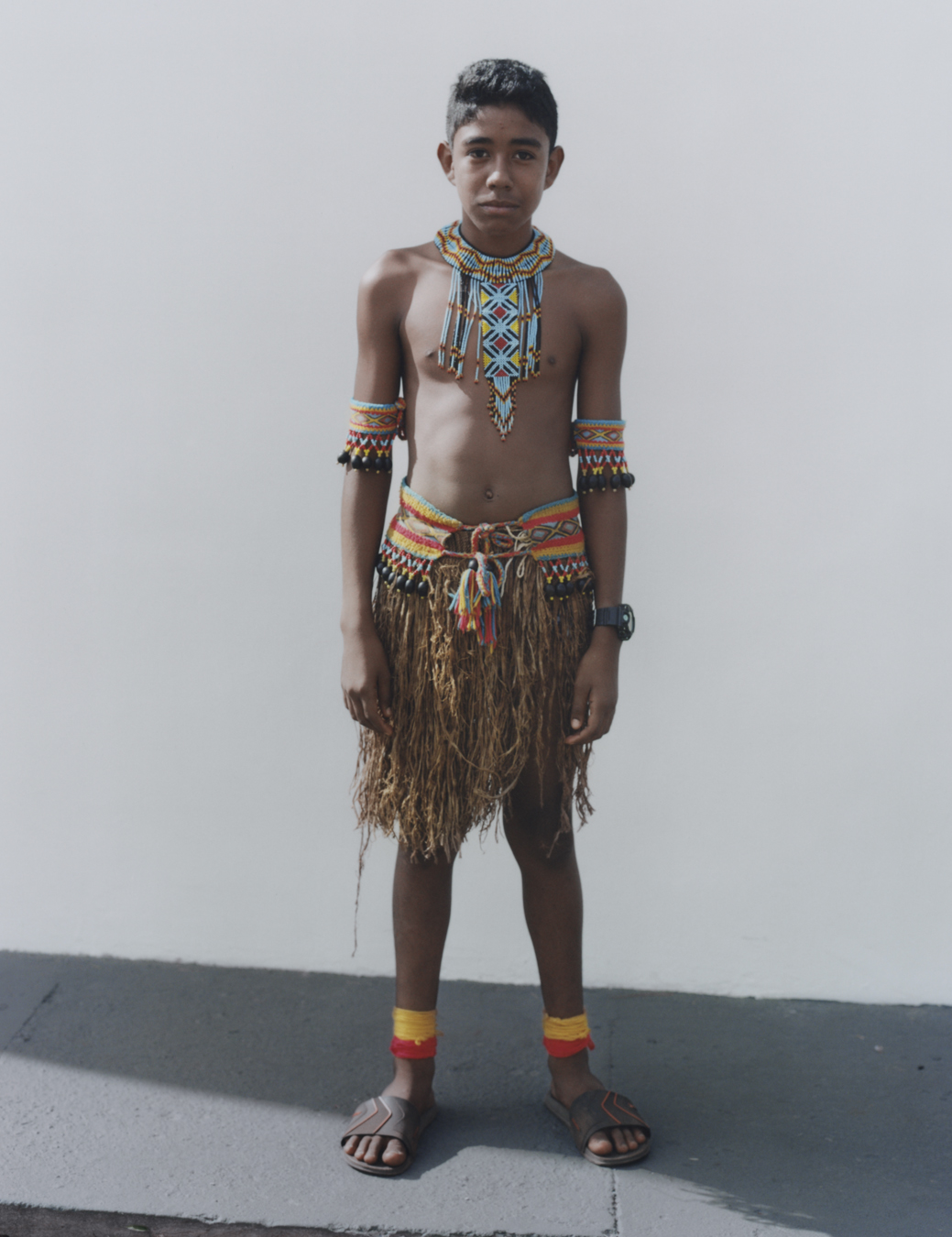
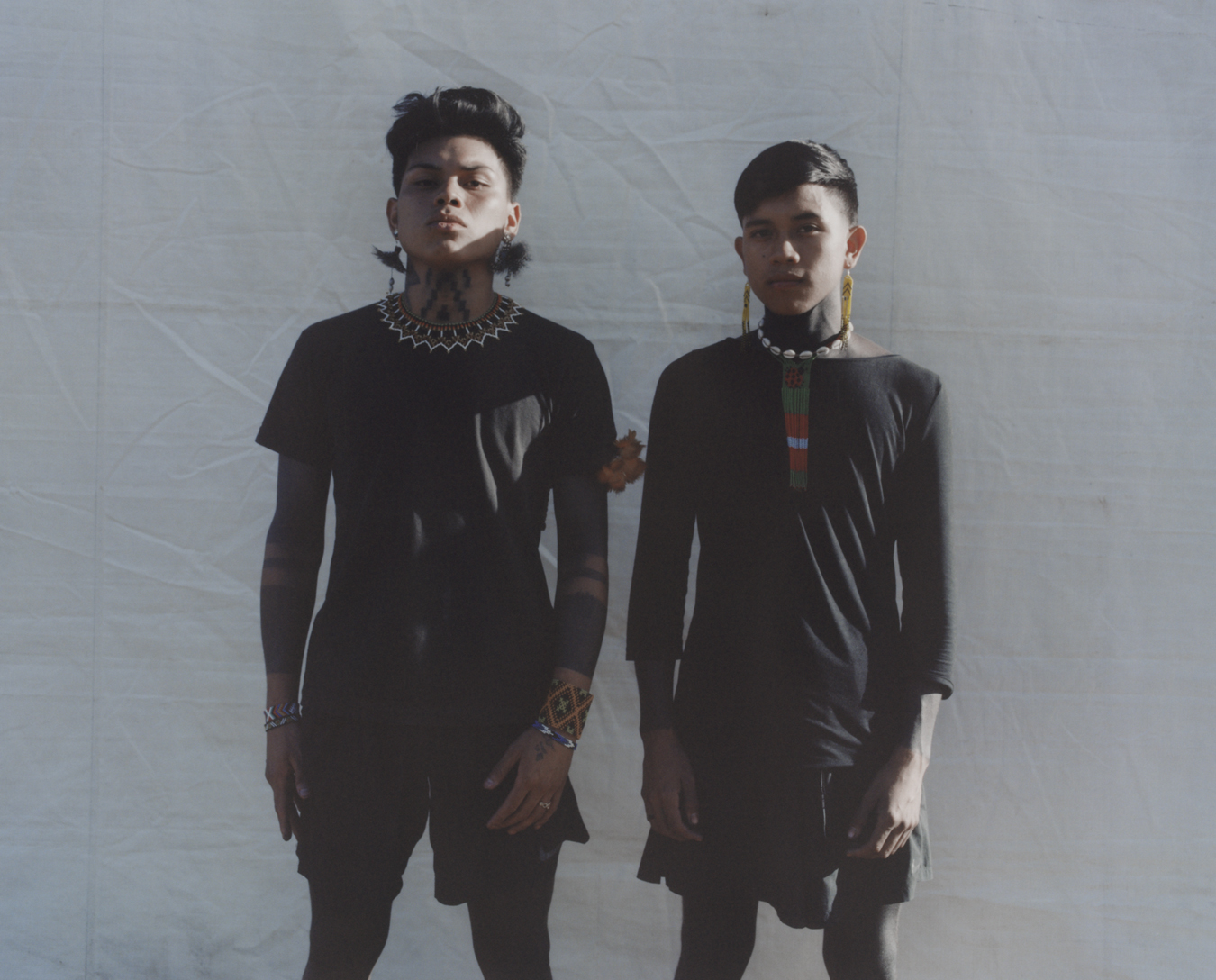

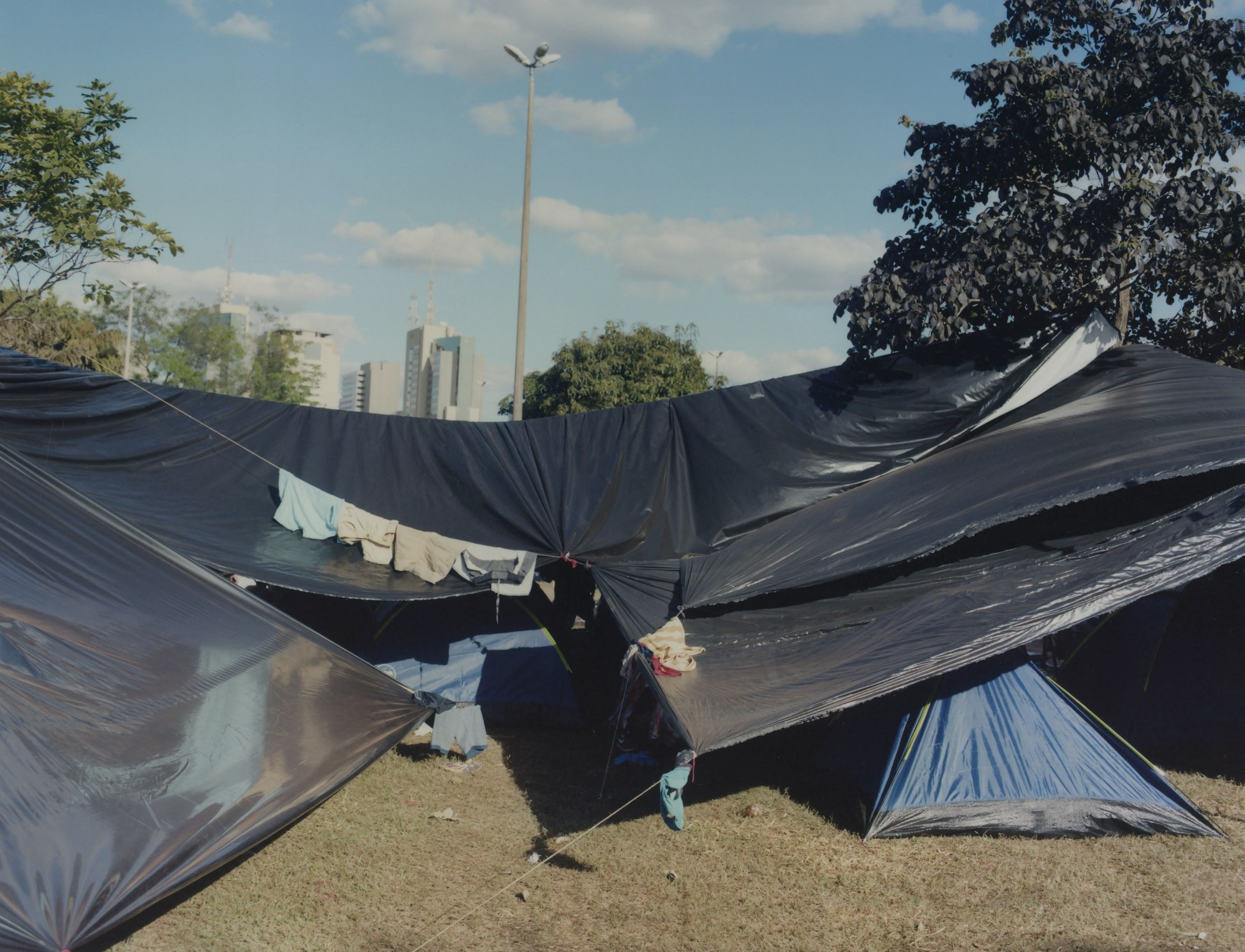
Follow i-D on Instagram and TikTok for more from the new issue.
Credits
Photography Vava Ribeiro
Production Marcelo Miranda (Boró)
Black and white prints Jeremy Brenner
Special thanks to the Aymara, Fulni-ô, Guaraní, Kaingang, Kalapalo, Kayapó, Pataxó, Waiapi and other tribes featured in this story
